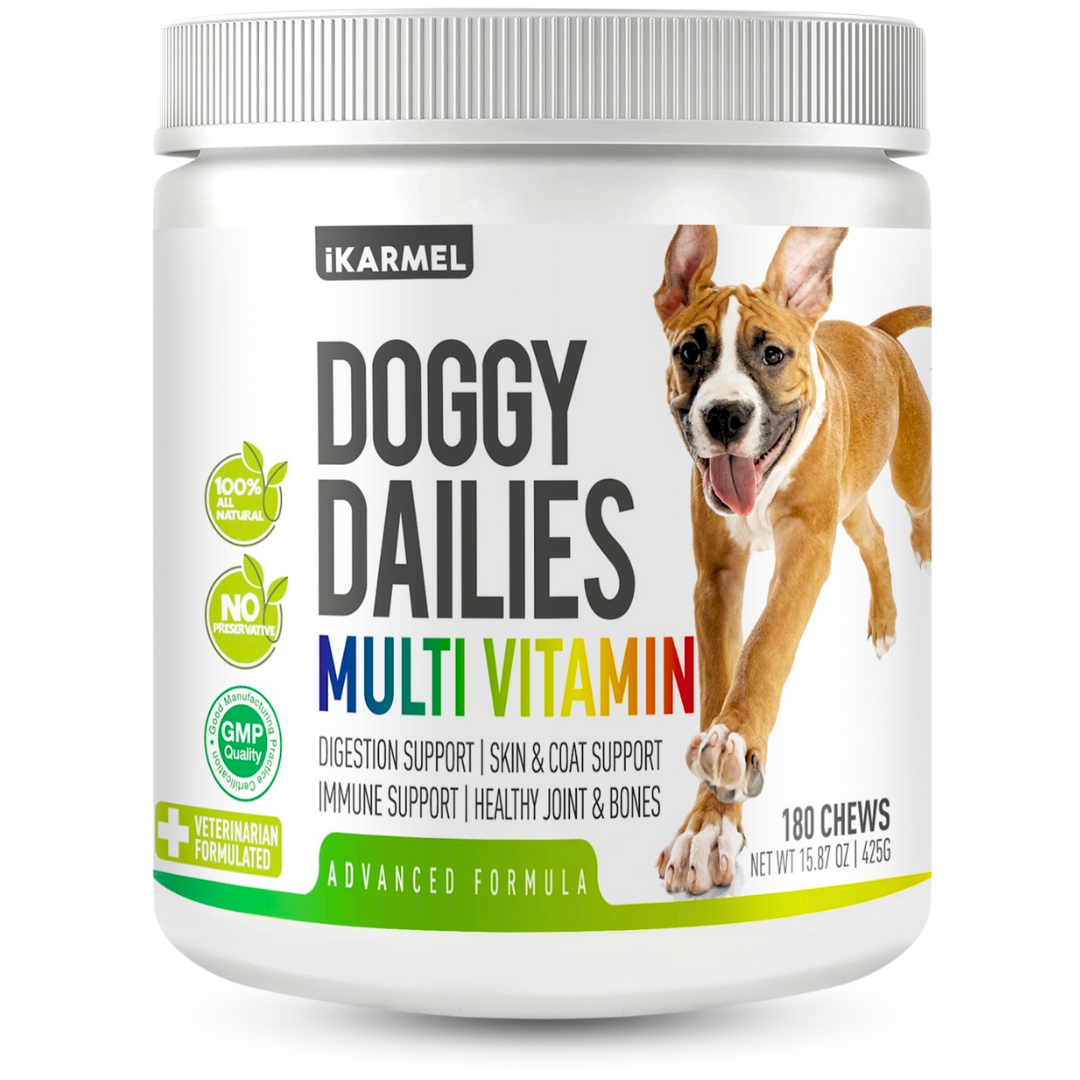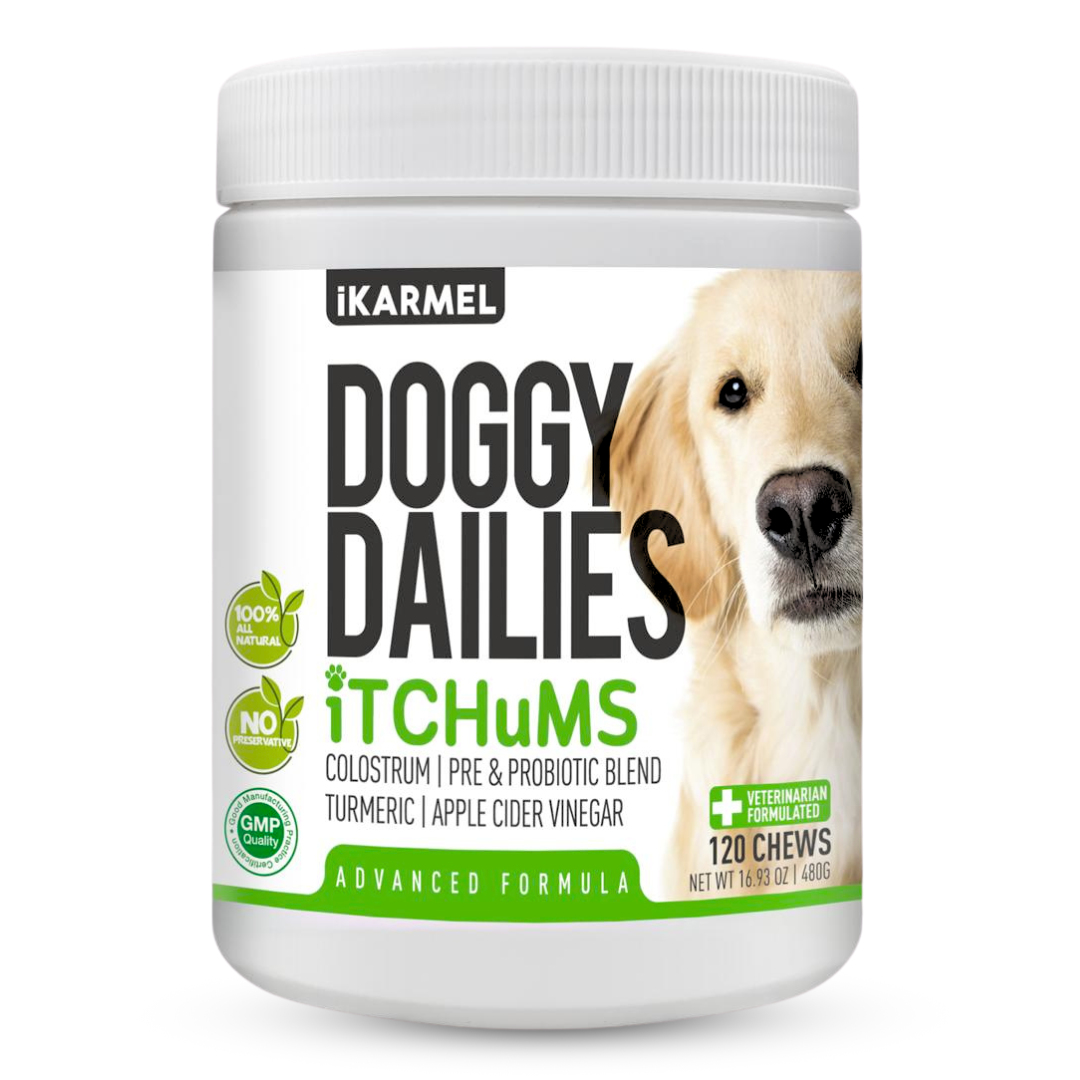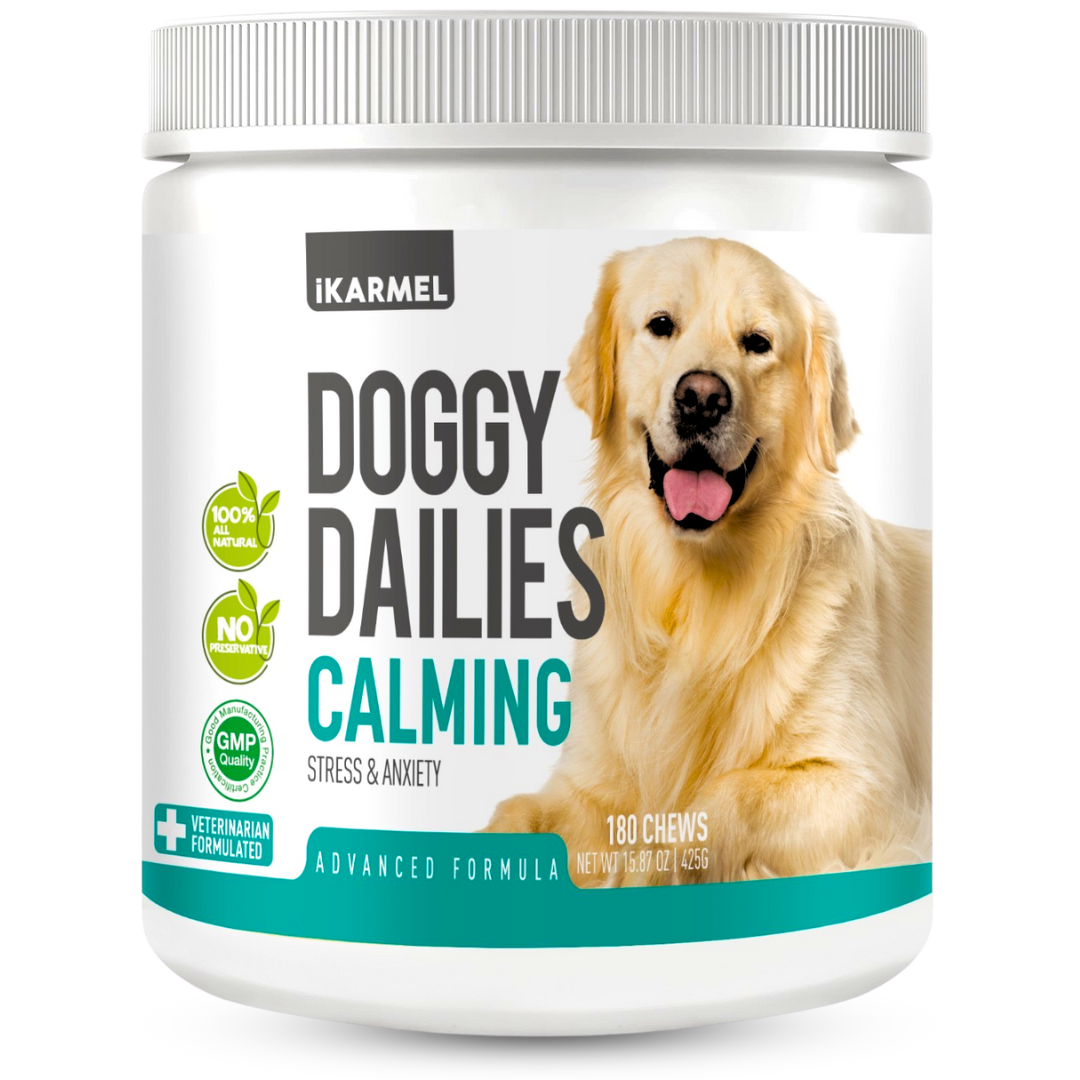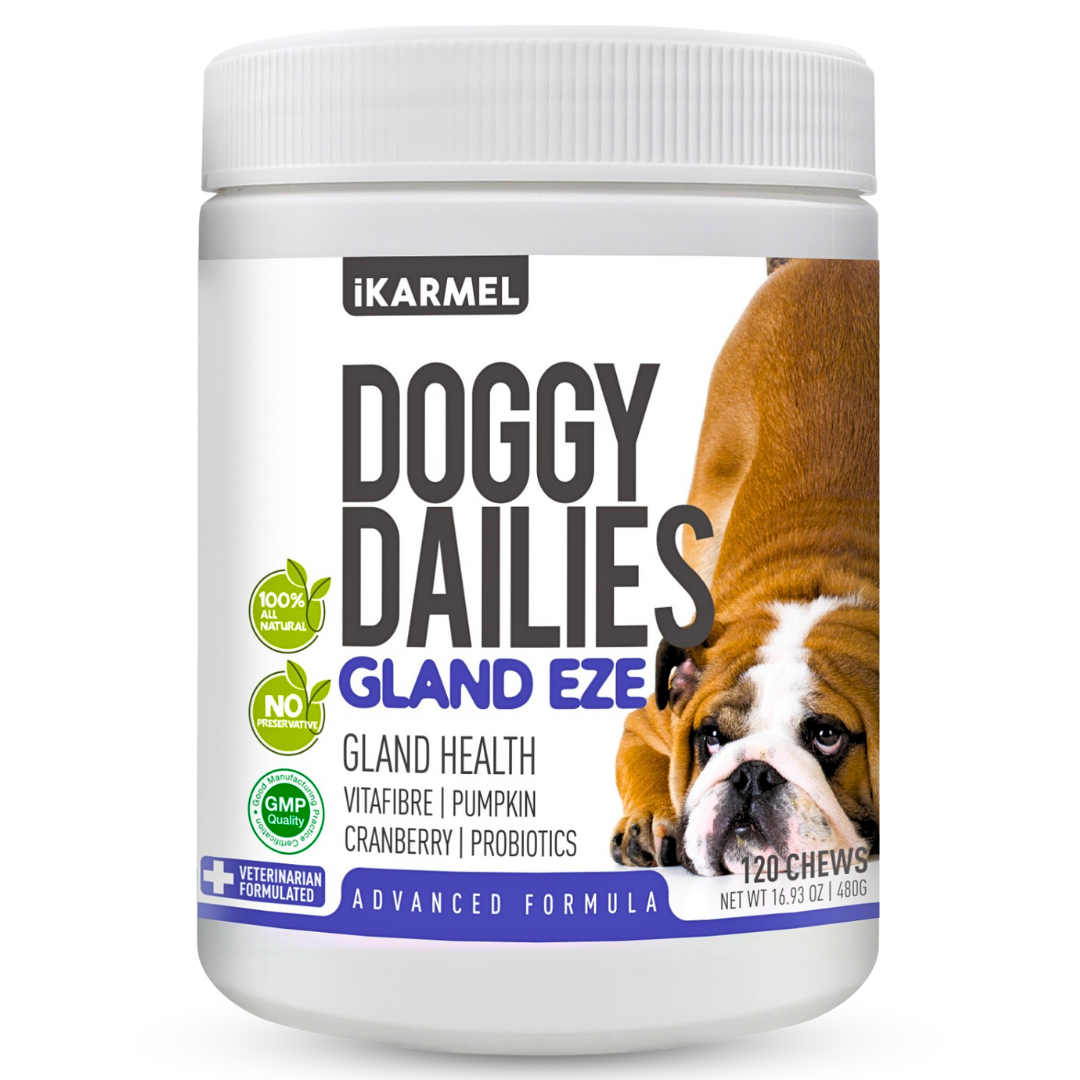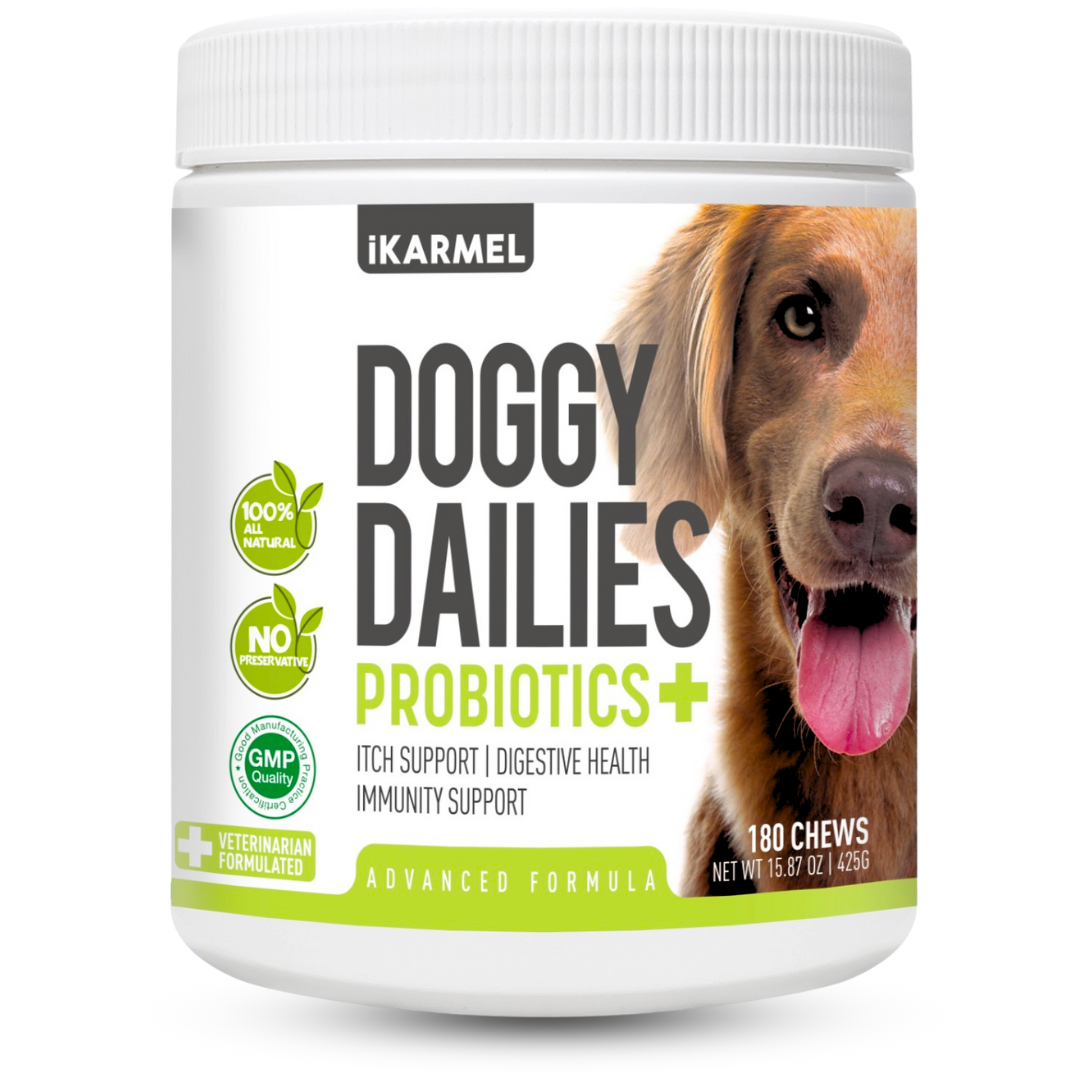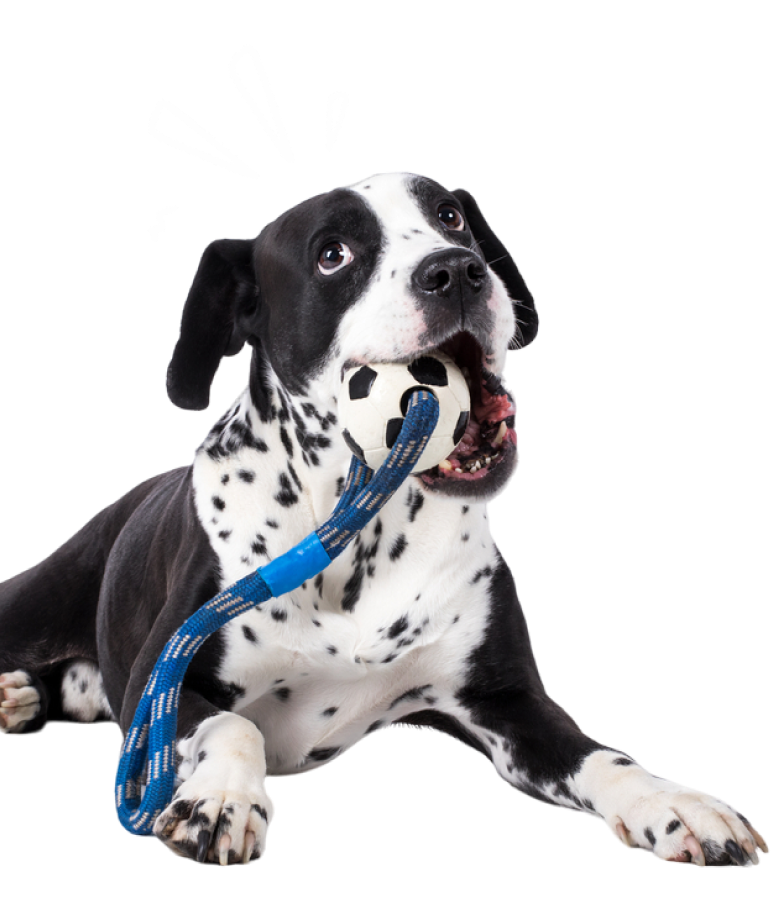Signs of Joint Problems in Dogs; When to Consider Supplements
As a responsible pet owner, you want your dog to lead a happy and healthy life. One common health concern that can affect dogs, especially as they age, is joint problems. Just like humans, dogs can suffer from joint issues, and it's essential to recognise the signs early to ensure their comfort and wellbeing. Pay close attention to changes in your dog's movements, like difficulty playing, reluctance to climb stairs, or limping, as these can be early indicators of joint problems. In this post, we look at the signs of joint problems in dogs and discuss when it's appropriate to consider joint supplements as part of their care plan.
Understanding Joint Problems in Dogs
Before diving into the signs and when to consider supplements, it's crucial to understand what joint problems are and why they occur in dogs. Joint problems in dogs primarily revolve around issues with their bones, cartilage and the synovial fluid that lubricates their joints. These problems can lead to discomfort, pain and reduced mobility for your beloved pet.
Common Signs of Joint Problems
One of the most noticeable signs of joint issues is limping or favouring one leg over the others. If your dog is hesitant to put weight on a particular leg or is limping consistently, it's a clear indication that something may be wrong with their joints.
Dogs with joint problems may exhibit stiffness, especially after rest or in the morning. You might notice that your dog is reluctant to move or has difficulty getting up, climbing stairs or jumping onto furniture. Dogs in pain often show changes in behaviour. Watch out for signs such as whining, whimpering or growling when they are touched or moved, as these may indicate discomfort.
In some cases, the affected joints may become swollen or appear larger than usual. This swelling can be accompanied by heat in the area. Joint pain and discomfort can lead to reduced activity levels and lethargy in dogs. If your once-active pup is now spending more time sleeping and less time playing, it could be due to joint problems.
Dogs with joint issues may have an altered gait. They might walk with a shortened stride or an abnormal posture, which can be a clear sign of discomfort. Some dogs may become irritable or show changes in their behaviour when they are in pain. Keep an eye out for any uncharacteristic behaviour, such as increased aggression or withdrawal.
When to Consider Supplements
Once you've identified one or more of these signs in your dog, it's time to consider how to alleviate their discomfort and improve their joint health. Joint supplements can be a valuable addition to your dog's care plan, but it's essential to consult with your vet before starting any new regimen. Be sure to always seek professional advice before giving your dog any supplements. Your vet can assess your dog's condition, perform necessary tests and recommend the most suitable supplements and treatment plan.
When selecting joint supplements, choose high quality products. Look for supplements that contain glucosamine, chondroitin sulphate and omega-3 fatty acids, as these ingredients are known for their potential benefits in promoting joint health. Follow your vet's guidance regarding the correct dosage and administration of supplements. The appropriate dosage can vary based on your dog's size, age and specific joint issues.
Keep a close eye on your dog's progress. If you notice improvements in their mobility, reduced pain or increased comfort, it's a positive sign that the supplements are working. In addition to supplements, consider making lifestyle adjustments to support your dog's joint health. This may include managing their weight, providing gentle exercise and ensuring they have a comfortable and supportive environment.
Welcome to iKarmel
Recognising the signs of joint problems in your dog and taking appropriate action is crucial for their wellbeing. If your furry friend is experiencing joint issues, consult your vet immediately. Joint supplements can be a valuable part of their treatment plan, but they should be used in conjunction with professional guidance. By addressing joint problems early and providing the right care, you can help your dog enjoy a happier and more comfortable life for years to come.
To find out more about the supplements that are available for your dog and other signs that may mean your dog is trying to tell you something, visit the iKarmel website or get in contact with our experts directly by completing our online contact form and we will get back to you as soon as possible with the further information you need to spot the signs of joint problems in your dog.
